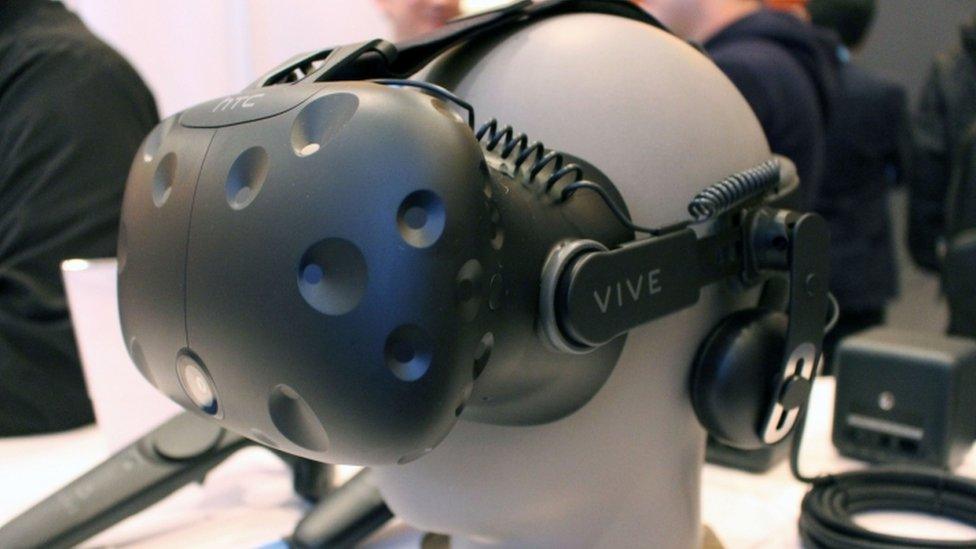Virtual reality: Welsh firms increasingly using VR tech
- Published
Paolo Tardivel of BT Openreach shows how the VR videos are helping recruitment
It has been more traditionally associated with the games industry, but businesses are increasingly switching on to the benefits of virtual reality.
With the cost of the technology coming down, companies are looking at different ways to provide improved services for customers and staff.
Mobile phones can now be attached inside relatively cheap headsets.
And Welsh firms are taking advantage of virtual reality (VR) in a variety of industries.
ESTATE AGENTS GIVE YOU A VIRTUAL RUN OF THE HOUSE
Family-run estate agents Jeffrey Ross, in Cardiff, said it has had "phenomenal" interest in its use of VR and had a big effect on business since it was introduced in March.
The company pays a licence fee per property to use it with a Californian firm.
Cardiff estate agent says house viewings by VR saving time
Head of sales Elliott Hooper Nash said it was about embracing new technology.
"Estate agency has been the same for 50 years - you take some pretty pictures, now you put it online and you're the same as everyone else. We thought this would be a niche to entice people to feel like they've seen the property before they get there," he said.
"It's about managing expectations. We're seeing fewer viewings per offers, which is great because we can save a lot of time - people already have a feel for it online, they feel better informed. It feels quite tactile."
He said this was about "giving the client more", which they have to do because competition is "getting more and more fierce".

A HEAD FOR HEIGHTS? WOULD-BE TELECOM ENGINEERS TAKE A VIRTUAL CLIMB UP A POLE
Paolo Tardivel, of BT Openreach, said they have been using VR in the recruitment process since April - including an insight of what it is like to climb a pole to work as an engineer.
"It means we can both attract and retain talented people - and there are no surprises down the line and we don't get people dropping out or being unhappy in work," he said.
Mr Tardivel said the technology was getting cheaper all the time and they were looking at bringing it into training too.
"It's a great example of having to embrace technology, which is a benefit to candidates coming in as well as business."
Elliott Hurford, a BT Openreach apprentice involved in planning, said: "It's actually pretty accurate having been into exchanges and up poles - it's very similar to the real thing, especially depth perception."
Josh Roberts, another apprentice involved in installing phone lines, added: "It gives a good insight rather than just watching videos. It's pretty similar - especially the pole-climbing one, you get panoramic views of what it's like to climb the pole."

HELPING TO PLAN AND DESIGN A WATER WORKS
Martin Hennessey, director of capital delivery, said the possibilities were limitless.
Welsh Water has a virtual reality "igloo" to help design and model its new water and waste water works.
The technology paid for itself on its first scheme - a £32m water treatment works at Bryn Cowlyd in Dolgarrog, Conwy, which serves 100,000 people in the Colwyn Bay area. It is now being applied to 50 projects.
Martin Hennessey, director of capital delivery for Dwr Cymru, said: "It effectively allows us to take a two dimensional plan, convert into a three dimensional model and lets our engineers walk through it before we build it - refine its health and safety, operability and also save on building costs.
"We're looking to use it more effectively to plan more customer interventions and impact, to help us understand road diversions if we have to put them into place. At the moment, we see limitless uses."
- Published31 January 2017
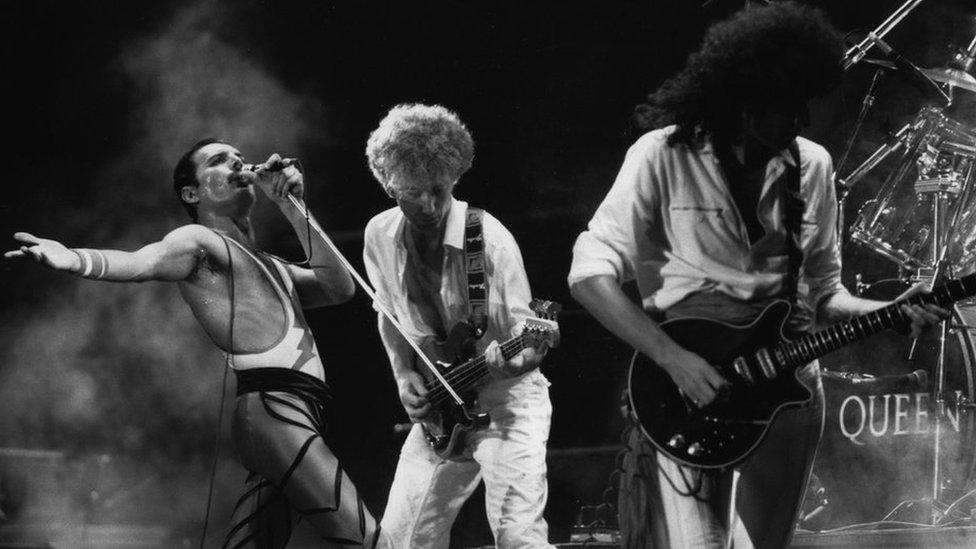
- Published28 January 2017

- Published24 October 2016
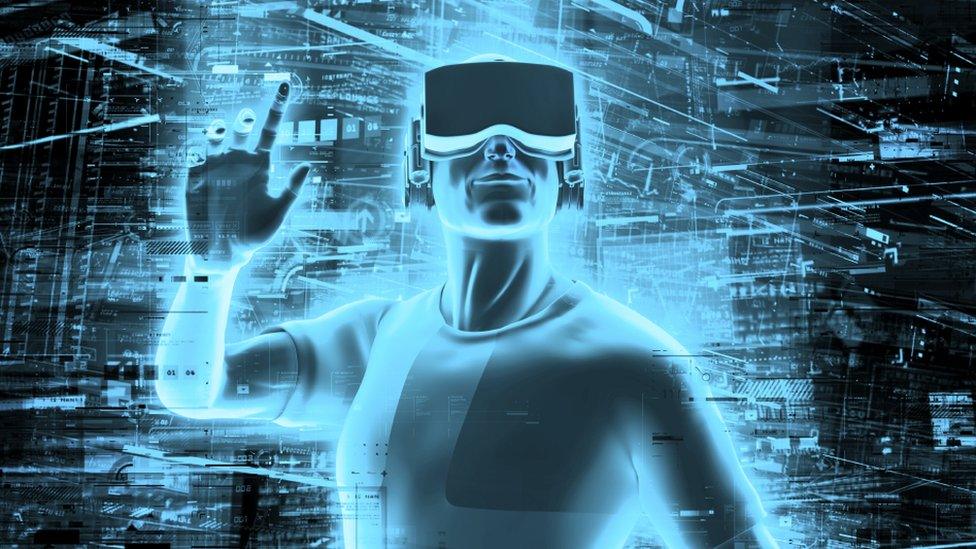
- Published11 May 2017
- Published18 May 2016
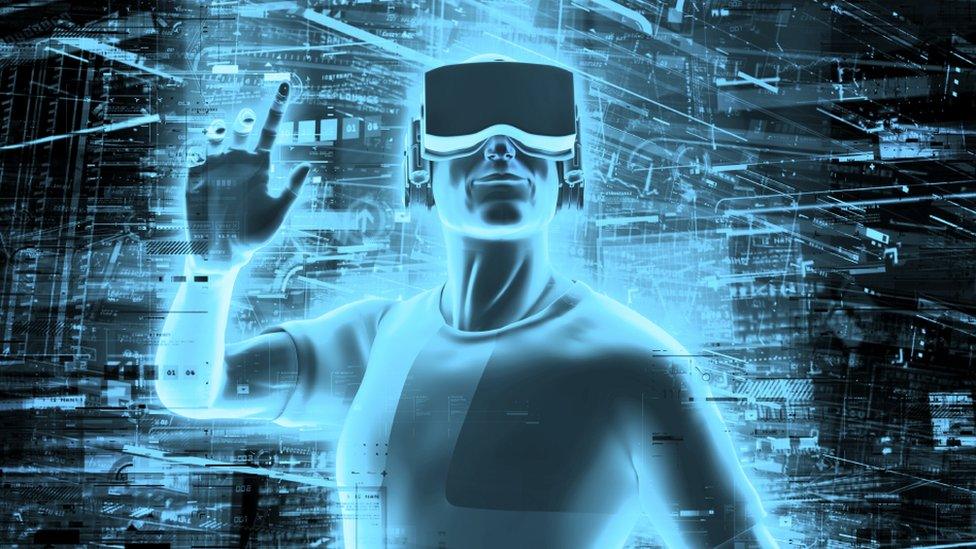
- Published26 May 2017

- Published26 February 2016
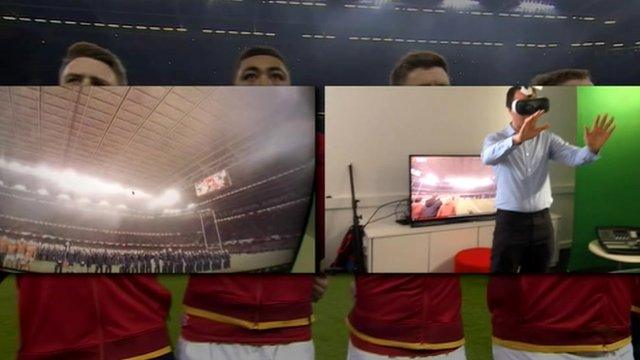
- Published9 May 2017
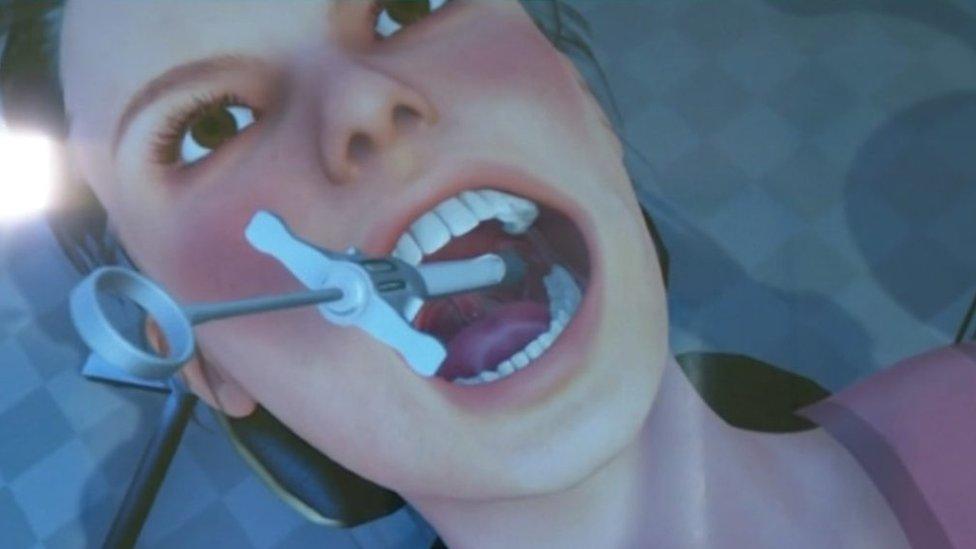
- Published16 June 2016
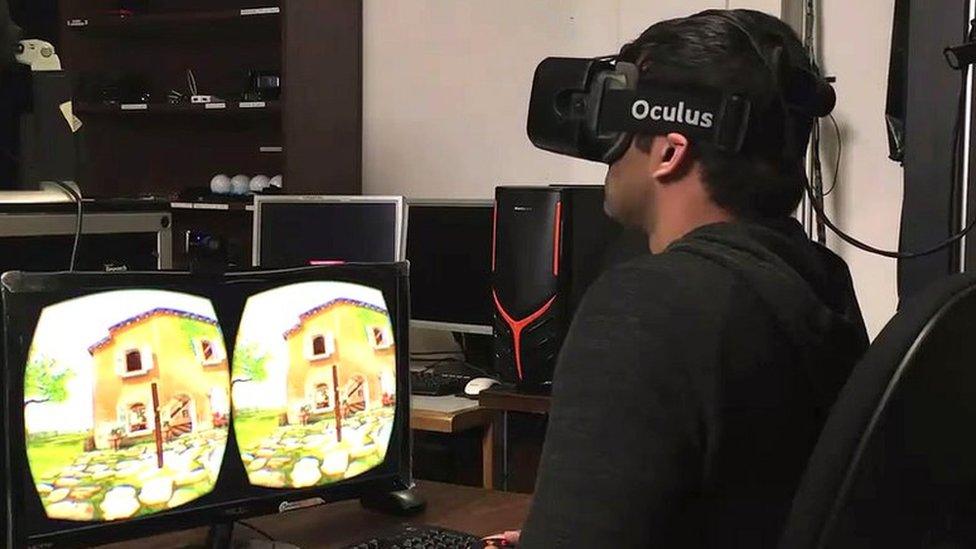
- Published16 February 2017
